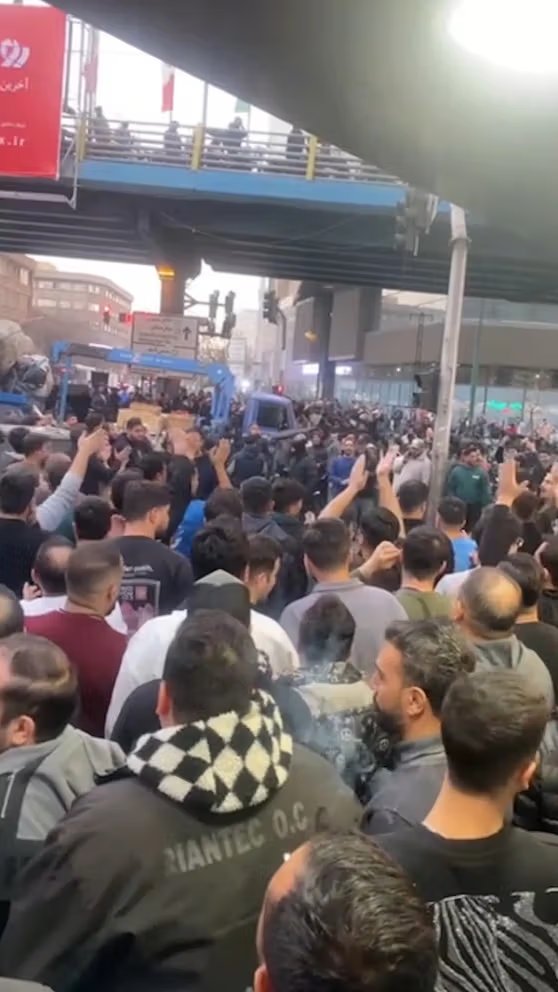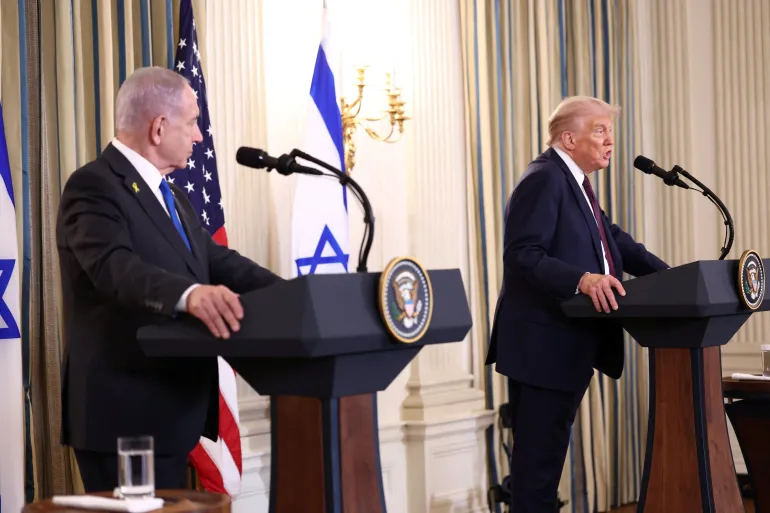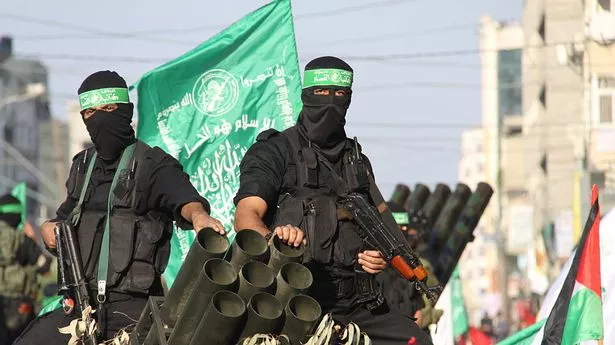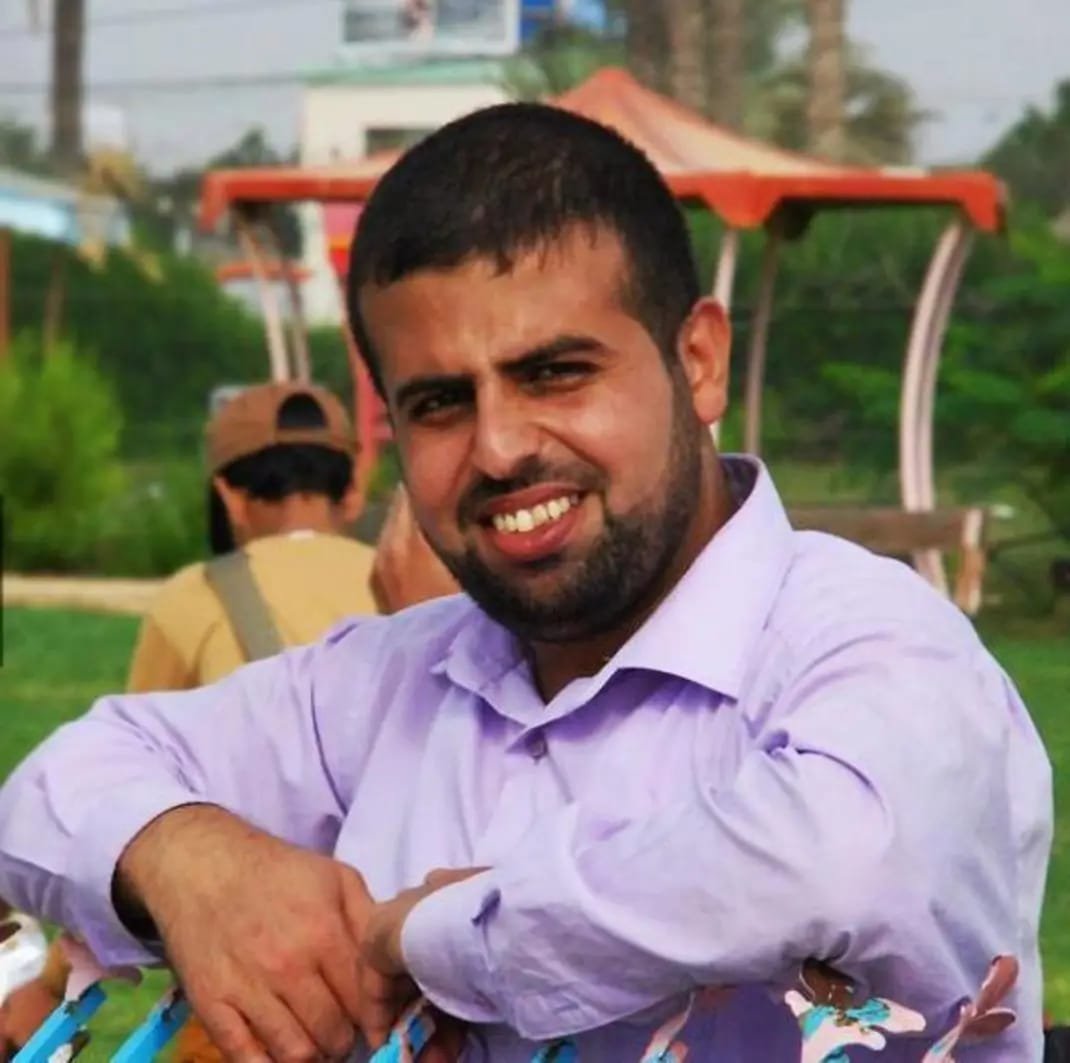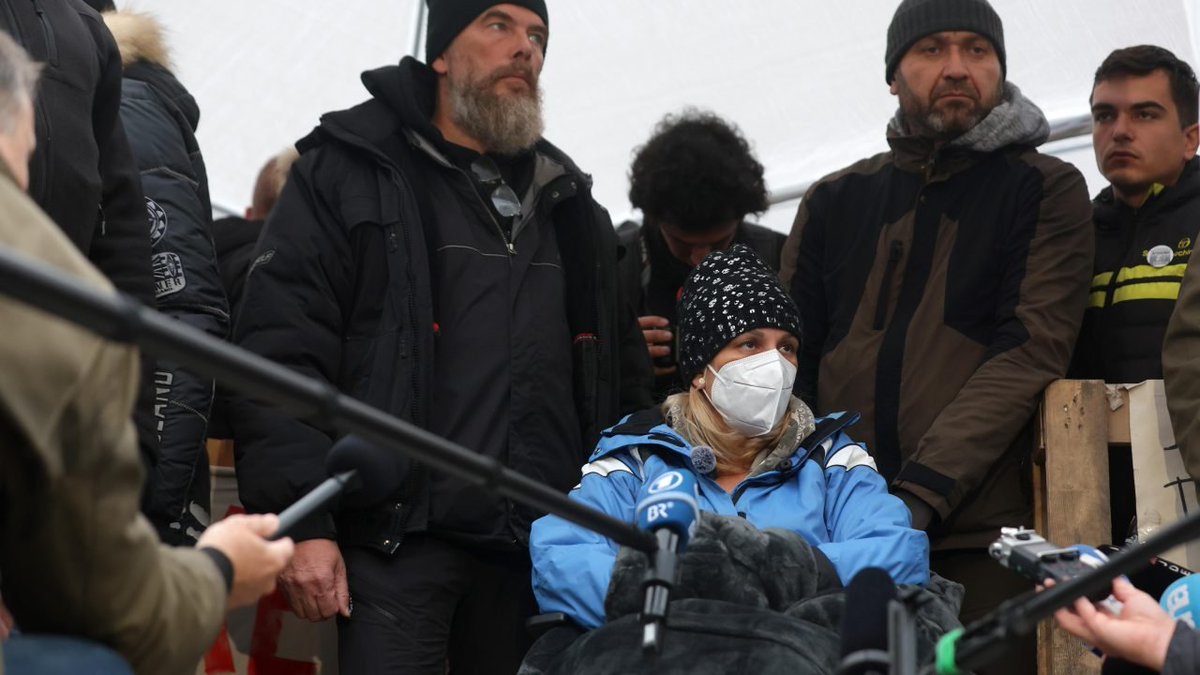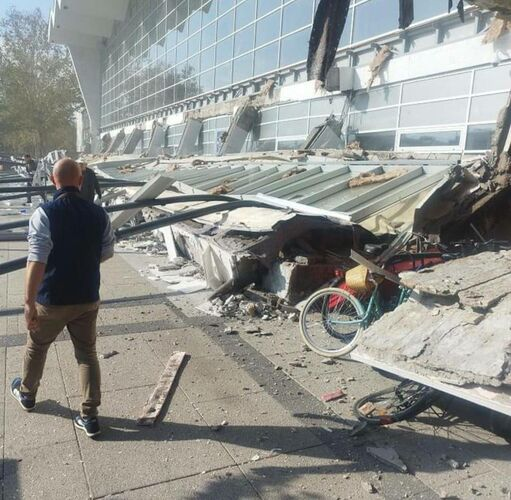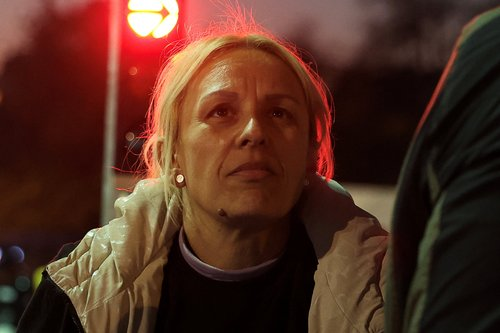30 Years of Qatar’s Links to Terrorist Financing and Support.
Qatar has been tied to hosting and supporting some of the world’s most notorious terror groups for three decades.
From Hamas to Al-Qaeda, here’s a deep dive into their terror connections🧵
Qatar has been tied to hosting and supporting some of the world’s most notorious terror groups for three decades.
From Hamas to Al-Qaeda, here’s a deep dive into their terror connections🧵

1. Hamas:
Aside from financing, Qatar has hosted Hamas leaders like Khaled Mashal & Ismail Haniyeh.
• Since 2007: Qatar has provided financial aid to Gaza governed by Hamas, under the pretext of humanitarian assistance. This aid includes money for infrastructure, salaries for government employees, and fuel for electricity.
• Post-2012: After Hamas’s relocation to Qatar after a fallout with Assad, the country emerged as one of its most vocal backers, offering tens of millions of dollars in funding annually.
• Direct Payments: Qatar has facilitated cash transfers to Gaza for salaries and public services, often with the approval of international intermediaries to avoid accusations of directly funding terrorism.
Humanitarian aid or funding terror?
Aside from financing, Qatar has hosted Hamas leaders like Khaled Mashal & Ismail Haniyeh.
• Since 2007: Qatar has provided financial aid to Gaza governed by Hamas, under the pretext of humanitarian assistance. This aid includes money for infrastructure, salaries for government employees, and fuel for electricity.
• Post-2012: After Hamas’s relocation to Qatar after a fallout with Assad, the country emerged as one of its most vocal backers, offering tens of millions of dollars in funding annually.
• Direct Payments: Qatar has facilitated cash transfers to Gaza for salaries and public services, often with the approval of international intermediaries to avoid accusations of directly funding terrorism.
Humanitarian aid or funding terror?

2. The Taliban:
• In 2013, the Taliban opened their political office in Doha with help of Qatar. This office gave the Taliban a global platform and helped the negotiating with the 2020 Doha Agreement between the Taliban and the U.S.
• Qatar allegedly provided some financial assistance to the Taliban, these funds were framed as part of humanitarian aid efforts.
• The Taliban received living arrangements and logistical support for its representatives in Doha.
• In 2013, the Taliban opened their political office in Doha with help of Qatar. This office gave the Taliban a global platform and helped the negotiating with the 2020 Doha Agreement between the Taliban and the U.S.
• Qatar allegedly provided some financial assistance to the Taliban, these funds were framed as part of humanitarian aid efforts.
• The Taliban received living arrangements and logistical support for its representatives in Doha.

3. Al Qaeda:
• Jamal Ahmed al-Fadl, a former associate of Osama bin Laden, testified that bin Laden identified QCS as a significant funding source.
Qatar Charitable Society now goes under the name "Qatar Charity."
• Jamal Ahmed al-Fadl, a former associate of Osama bin Laden, testified that bin Laden identified QCS as a significant funding source.
Qatar Charitable Society now goes under the name "Qatar Charity."

4. Ahrar al-Sham:
Qatar funded the Syrian jihadist group from early on in the Syrian Civil War.
• Qatar was one of the biggest supporters of Syrian rebel groups, providing financial aid, weapons, and political backing.
• Assad had blocked a proposed pipeline to transport Qatari natural gas through Syria to Europe in 2009, significantly complicating Qatar’s plans to dominate Europe’s gas market.
Qatar funded the Syrian jihadist group from early on in the Syrian Civil War.
• Qatar was one of the biggest supporters of Syrian rebel groups, providing financial aid, weapons, and political backing.
• Assad had blocked a proposed pipeline to transport Qatari natural gas through Syria to Europe in 2009, significantly complicating Qatar’s plans to dominate Europe’s gas market.

5. Harboring 9/11 Mastermind:
• Khalid Sheikh Mohammed: KSM worked in Qatar under the protection of Abdullah bin Khalid al-Thani, a Qatari minister and royal family member.
He fled Qatar in 1996, tipped off by Qatari officials when U.S. authorities were closing in
• Khalid Sheikh Mohammed: KSM worked in Qatar under the protection of Abdullah bin Khalid al-Thani, a Qatari minister and royal family member.
He fled Qatar in 1996, tipped off by Qatari officials when U.S. authorities were closing in

6. The terrorism financier
• Abd al-Rahman al-Nuaimi: This Qatari national was labeled a “global terrorist” by the U.S. for funneling millions to Al-Qaeda in Iraq, Syria, and Somalia.
All while living in ultimate comfort and peace in Doha.
• Abd al-Rahman al-Nuaimi: This Qatari national was labeled a “global terrorist” by the U.S. for funneling millions to Al-Qaeda in Iraq, Syria, and Somalia.
All while living in ultimate comfort and peace in Doha.

7. Hostage Ransoms or Financing Terror Organisations?
• In 2013, Qatar paid a large amount of money to the Syrian Al-Qaeda affiliates for the release of hostages. They were accused of supporting terrorism under the banner of diplomacy.
• In 2015, one of the Qatari royal family’s hunting party was kidnapped in Southern Iraq. Qatar paid hundreds of millions for their release and the money was allegedly channeled to organisations such as Kata’ib Hezbollah and the Iranian Islamic Regime's security apparatus.
• In 2013, Qatar paid a large amount of money to the Syrian Al-Qaeda affiliates for the release of hostages. They were accused of supporting terrorism under the banner of diplomacy.
• In 2015, one of the Qatari royal family’s hunting party was kidnapped in Southern Iraq. Qatar paid hundreds of millions for their release and the money was allegedly channeled to organisations such as Kata’ib Hezbollah and the Iranian Islamic Regime's security apparatus.

8. The Muslim Brotherhood:
• Qatar has been a safe haven for many of the Muslim Brotherhood leaders, offering refuge to members fleeing Egypt in particular. Yusuf al-Qaradawi and Amr Darrag are among the notable MB figures Qatar has hosted.
• During and after the Arab Spring (2011), Qatar provided financial and political support to the Brotherhood, a backing that continues to this day.
• Qatar has been a safe haven for many of the Muslim Brotherhood leaders, offering refuge to members fleeing Egypt in particular. Yusuf al-Qaradawi and Amr Darrag are among the notable MB figures Qatar has hosted.
• During and after the Arab Spring (2011), Qatar provided financial and political support to the Brotherhood, a backing that continues to this day.

9. Al Jazeera or Jihad Central - A Platform for Terror
Qatar’s state-funded Al Jazeera network has been a mechanism for amplifying terror:
• Post-9/11 Al-Qaeda Era: During the early 2000s, Al Jazeera frequently aired video and audio messages from Osama bin Laden and other senior al-Qaeda leaders. The air-time they received included calls for violence against Western nations. Additionally, Ayman al-Zawahiri used AJ to communicate his goals and claim responsibility for attacks.
• Muslim Brotherhood: Al Jazeera promotes the narratives of groups like the Muslim Brotherhood, offering unlimited airtime to Brotherhood leaders and their policies, especially during the Arab Spring.
• Sympathetic Framing: Al Jazeera’s framing of Islamist groups often veers into sympathetic territory, making it a soft power tool for Qatar’s broader geopolitical aims.
Qatar’s state-funded Al Jazeera network has been a mechanism for amplifying terror:
• Post-9/11 Al-Qaeda Era: During the early 2000s, Al Jazeera frequently aired video and audio messages from Osama bin Laden and other senior al-Qaeda leaders. The air-time they received included calls for violence against Western nations. Additionally, Ayman al-Zawahiri used AJ to communicate his goals and claim responsibility for attacks.
• Muslim Brotherhood: Al Jazeera promotes the narratives of groups like the Muslim Brotherhood, offering unlimited airtime to Brotherhood leaders and their policies, especially during the Arab Spring.
• Sympathetic Framing: Al Jazeera’s framing of Islamist groups often veers into sympathetic territory, making it a soft power tool for Qatar’s broader geopolitical aims.

10. Libyan Chaos:
• In 2011, Qatar supported Islamist factions fighting against Gaddafi. They provided arms, funding, and logistical support.
• In 2014, Qatar backed the Libyan Dawn coalition, an Islamist militia alliance that seized control of Tripoli and opposed the internationally recognized government in Tobruk.
• Their involvement destabilised Libya for years.
• In 2011, Qatar supported Islamist factions fighting against Gaddafi. They provided arms, funding, and logistical support.
• In 2014, Qatar backed the Libyan Dawn coalition, an Islamist militia alliance that seized control of Tripoli and opposed the internationally recognized government in Tobruk.
• Their involvement destabilised Libya for years.

11. Syrian Civil War:
• Qatar poured billions into Syrian rebels, including groups tied to Al-Qaeda, like the Al-Nusra Front.
• Qatar sent weapons, including small arms, anti-tank missiles, and other military equipment, to Syrian rebel groups.
• Shipments were often facilitated through Turkey, which shared Qatar’s anti-Assad stance.
• Qatar poured billions into Syrian rebels, including groups tied to Al-Qaeda, like the Al-Nusra Front.
• Qatar sent weapons, including small arms, anti-tank missiles, and other military equipment, to Syrian rebel groups.
• Shipments were often facilitated through Turkey, which shared Qatar’s anti-Assad stance.

12. Yusuf al-Qaradawi:
• Al-Qaradawi was a radical Muslim Brotherhood cleric and was a designated a terrorist by multiple countries and listed on Interpol’s Red Notice. He resided in Doha, Qatar, for decades under the protection of the Qatari government.
• Al-Qaradawi openly endorsed and encouraged suicide bombings. He called for uprisings against authoritarian regimes in the Middle East, issued fatwas advocating jihad against Syrian President Bashar al-Assad, and made inflammatory remarks against Shia Muslims. He also supported the death penalty for Muslims who leave Islam.
• His primary platform for spreading these views was Qatar’s state-funded Al Jazeera network where he had a weekly show that had around 50 million viewers per episode.
• Al-Qaradawi was a radical Muslim Brotherhood cleric and was a designated a terrorist by multiple countries and listed on Interpol’s Red Notice. He resided in Doha, Qatar, for decades under the protection of the Qatari government.
• Al-Qaradawi openly endorsed and encouraged suicide bombings. He called for uprisings against authoritarian regimes in the Middle East, issued fatwas advocating jihad against Syrian President Bashar al-Assad, and made inflammatory remarks against Shia Muslims. He also supported the death penalty for Muslims who leave Islam.
• His primary platform for spreading these views was Qatar’s state-funded Al Jazeera network where he had a weekly show that had around 50 million viewers per episode.

13. Islamists in Mali
• Qatar has been accused of funding Islamist insurgents linked to Al-Qaeda in Mali. The Qatari Red Crescent operated in northern Mali during the conflict.
• Financial Support Allegations: French intelligence accused Qatar of funding al-Qaeda affiliates like AQIM and MUJAO in Mali in the year 2012.
• Qatar’s interference is seen as a broader strategy to expand influence in the Sahel region, similar to the Arab Spring.
• Qatar has been accused of funding Islamist insurgents linked to Al-Qaeda in Mali. The Qatari Red Crescent operated in northern Mali during the conflict.
• Financial Support Allegations: French intelligence accused Qatar of funding al-Qaeda affiliates like AQIM and MUJAO in Mali in the year 2012.
• Qatar’s interference is seen as a broader strategy to expand influence in the Sahel region, similar to the Arab Spring.

13. Houthi Rebels in Yemen:
• In 2020, documents surfaced alleging that Qatar paid $2 million monthly to Houthi-affiliated groups, through entities like Qatar Charity.
• Qatar’s state-funded media outlet, Al Jazeera, has provided favourable coverage to the Houthis.
• Qatar has contributed to humanitarian efforts in Yemen, including financial support for “food security and development projects.”
• In 2020, documents surfaced alleging that Qatar paid $2 million monthly to Houthi-affiliated groups, through entities like Qatar Charity.
• Qatar’s state-funded media outlet, Al Jazeera, has provided favourable coverage to the Houthis.
• Qatar has contributed to humanitarian efforts in Yemen, including financial support for “food security and development projects.”

14. Al-Shabaab (Somalia):
• There have been reports that Qatari-based charities operating in Somalia have been used as fronts to channel funds to Al-Shabaab.
• Qatar’s alleged support for Al-Shabaab is a strategy to expand influence in the Horn of Africa.
• In 2019, leaked audio recordings reportedly captured a Qatari businessman close to the government suggesting that attacks by Al-Shabaab served Qatar’s interests in Somalia.
• There have been reports that Qatari-based charities operating in Somalia have been used as fronts to channel funds to Al-Shabaab.
• Qatar’s alleged support for Al-Shabaab is a strategy to expand influence in the Horn of Africa.
• In 2019, leaked audio recordings reportedly captured a Qatari businessman close to the government suggesting that attacks by Al-Shabaab served Qatar’s interests in Somalia.

15. In 2019, Nicephore Soglo, the former President of Benin, claimed that Qatar was funding Boko Haram’s terror attacks in Nigeria.
In conclusion, Qatar's influence reaches practically every conflict in the region where Islamists are involved in the fighting.
In conclusion, Qatar's influence reaches practically every conflict in the region where Islamists are involved in the fighting.

• • •
Missing some Tweet in this thread? You can try to
force a refresh



